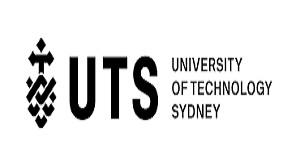The University of Pennsylvania Carey Law School, commonly known as Penn Law, stands as one of the oldest and most prestigious law schools in the United States. Established in 1850, Penn Law has built a legacy of academic excellence, interdisciplinary study, and a commitment to social justice. This article provides a detailed exploration of Penn Law’s history, academic programs, faculty, experiential learning opportunities, research initiatives, and impact on the legal field. It also highlights Penn Law’s approach to fostering a diverse and inclusive environment that prepares students to excel in a rapidly evolving legal landscape.
1. History and Legacy of Penn Law
Founded in 1850, Penn Law is one of the oldest law schools in the United States. Located in Philadelphia, Pennsylvania, the school was established as part of the University of Pennsylvania, an Ivy League institution known for its academic rigor and focus on interdisciplinary education. Since its founding, Penn Law has been dedicated to producing highly skilled legal professionals and scholars who contribute to the advancement of the law and justice in society.
Penn Law’s rich history includes notable alumni such as U.S. Supreme Court Justices Owen J. Roberts and William J. Brennan Jr., along with influential lawyers, judges, and politicians. This legacy of impact reflects Penn Law’s emphasis on rigorous legal training, ethical responsibility, and public service.
2. Academic Programs and Degrees Offered
Penn Law offers a range of degree programs designed to meet the needs of diverse students pursuing careers in law. Each program is structured to provide a strong foundation in legal theory while also offering opportunities for specialization and practical experience.
- Juris Doctor (JD): The JD program at Penn Law is a three-year program that emphasizes a broad-based legal education, combined with opportunities for specialization through elective courses and concentrations. Penn Law’s JD program also includes interdisciplinary study options, allowing students to take courses from other graduate programs at the University of Pennsylvania.
- Master of Laws (LL.M.): This one-year program is designed for international students who already hold a law degree in their home country. The LL.M. program provides advanced training in U.S. law and offers specialized tracks in areas like business law, human rights, and international law.
- Doctor of Juridical Science (SJD): The SJD program at Penn Law is a research-based doctoral program intended for students who wish to pursue careers in academia, research, or policy. It is Penn Law’s most advanced law degree, requiring students to complete a dissertation under faculty supervision.
- Joint Degrees and Certificates: Penn Law encourages interdisciplinary study through joint degrees with other University of Pennsylvania schools, including the Wharton School, the Perelman School of Medicine, and the Annenberg School for Communication. Students can earn a JD/MBA, JD/MPH, JD/Ph.D., and other dual degrees, providing a multidisciplinary approach to their education.
- Executive Education Programs: Penn Law offers executive education programs for professionals looking to enhance their legal knowledge and skills. These programs are tailored to meet the needs of business leaders, government officials, and others who may not pursue a full-time law degree but seek to deepen their understanding of specific legal areas.
3. Faculty and Expertise
Penn Law is home to a distinguished faculty of scholars, researchers, and practitioners who are leaders in their respective fields. The faculty at Penn Law includes experts in constitutional law, criminal law, corporate law, environmental law, and many other areas. Many faculty members are involved in groundbreaking research, contribute to influential legal publications, and serve as advisors to governmental and international organizations.
One of Penn Law’s strengths is its emphasis on interdisciplinary teaching and research. Faculty members often collaborate with colleagues from other departments, such as business, public health, and environmental science, to provide students with a broader perspective on the law. This interdisciplinary approach allows Penn Law students to understand how legal principles intersect with other areas, equipping them with a more comprehensive understanding of complex issues.
4. Interdisciplinary Study and Cross-School Opportunities
One of the hallmarks of Penn Law is its commitment to interdisciplinary education. The law school’s close connection with other graduate schools at the University of Pennsylvania allows students to engage in cross-disciplinary study, enhancing their education and expanding their professional opportunities. Students can take courses at Penn’s prestigious Wharton School of Business, the Annenberg School for Communication, and the School of Social Policy & Practice, among others.
For example, Penn Law’s JD/MBA program is a popular joint-degree option that allows students to earn both a JD and an MBA in four years. This program is ideal for those interested in careers in corporate law, mergers and acquisitions, and business litigation. Similarly, the JD/MPH program prepares students for careers in health law, public health policy, and bioethics by combining legal studies with public health training.
5. Experiential Learning and Practical Training
Penn Law emphasizes experiential learning to ensure students are well-prepared to practice law upon graduation. The school offers a range of practical training opportunities, including clinics, externships, and pro bono work, allowing students to gain hands-on experience in various legal settings.
- Legal Clinics: Penn Law’s legal clinics offer students the opportunity to work on real cases under the supervision of experienced faculty. The school’s clinics cover areas such as civil practice, criminal defense, entrepreneurship, mediation, and child advocacy. Through these clinics, students learn practical skills in client representation, negotiation, and courtroom procedures.
- Externships: Penn Law’s externship program allows students to gain experience in government agencies, non-profit organizations, and corporate legal departments. Externships offer valuable networking opportunities and enable students to apply their legal knowledge in real-world settings.
- Pro Bono Work: Penn Law has a strong commitment to public service, and students are encouraged to participate in pro bono projects throughout their studies. The Toll Public Interest Center at Penn Law coordinates pro bono opportunities for students, enabling them to serve underrepresented communities and advocate for social justice.
- Moot Court and Trial Advocacy: Penn Law offers moot court and trial advocacy programs to enhance students’ litigation and advocacy skills. These programs simulate courtroom proceedings, allowing students to practice oral arguments, legal research, and case analysis in a competitive environment.
6. Research Centers and Institutes
Penn Law is home to several research centers and institutes that contribute to scholarship and policy in various areas of law. These centers provide students with opportunities to engage in research, collaborate with experts, and address some of the most pressing legal and social issues of our time. Some of the notable centers include:
- The Center for Technology, Innovation, and Competition (CTIC): This center focuses on the intersection of law, technology, and innovation. Research topics include intellectual property, privacy, and antitrust law, with a focus on how emerging technologies impact these areas.
- The Center for Ethics and the Rule of Law (CERL): CERL promotes ethical practices and the rule of law in areas such as national security, international law, and human rights. It brings together experts from law, philosophy, and ethics to address issues related to justice and governance.
- The Quattrone Center for the Fair Administration of Justice: Dedicated to studying and improving the U.S. criminal justice system, the Quattrone Center conducts research on wrongful convictions, prosecutorial misconduct, and other issues to promote fairness and accountability.
- Penn Program on Regulation (PPR): This program examines the role of regulation in law, business, and society. Its research focuses on areas such as environmental policy, financial regulation, and public health.
These research centers enhance Penn Law’s intellectual environment, allowing students to participate in policy discussions, engage in research projects, and contribute to meaningful legal reform.
7. Commitment to Diversity and Inclusion
Penn Law is dedicated to fostering a diverse and inclusive environment. The law school believes that diversity enriches the educational experience and prepares students for careers in a globalized society. Penn Law’s Office of Equity & Inclusion works to promote a welcoming atmosphere, support underrepresented students, and increase cultural competence among faculty and students.
The law school has also established several affinity groups and student organizations, including the Black Law Students Association (BLSA), the Latinx Law Students Association (LLSA), and the Asian Pacific American Law Students Association (APALSA). These groups provide support networks, host events, and advocate for diversity within the legal profession.
Penn Law’s commitment to diversity is further reflected in its admissions policies, which seek to attract students from a wide range of backgrounds, experiences, and perspectives. This emphasis on diversity and inclusion strengthens the Penn Law community and prepares graduates to serve clients from diverse communities.
8. Penn Law’s Impact on the Legal Profession
As a top law school, Penn Law has produced graduates who go on to become leaders in law, government, business, and public service. Alumni of Penn Law hold positions in prestigious law firms, federal and state judiciary, public interest organizations, and multinational corporations. Many Penn Law alumni have made significant contributions to the legal field, from shaping landmark court rulings to advocating for social change and justice reform.
Penn Law’s commitment to ethical responsibility, public service, and interdisciplinary education continues to shape its graduates’ career paths. Penn Law alumni are recognized not only for their legal expertise but also for their dedication to using their skills to make a positive impact on society.
9. Career Development and Employment Opportunities
The Career Planning and Professionalism (CP&P) office at Penn Law offers extensive support for students as they navigate the job market. The CP&P office provides career counseling, organizes job fairs, and facilitates networking opportunities with employers. Penn Law’s strong connections with law firms, corporations, and public interest organizations provide students with access to a wide range of employment options.
Graduates of Penn Law enjoy strong employment outcomes, with many securing positions at top law firms, government agencies, and public interest organizations.


